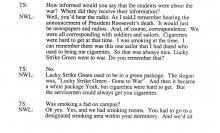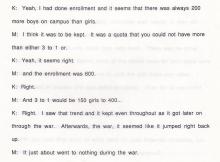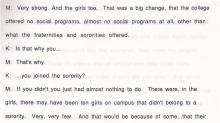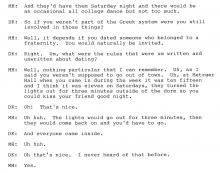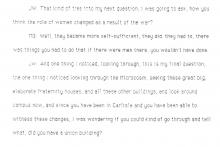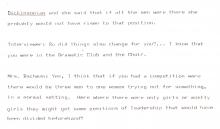When "Lucky Strike Green" goes to war, servicemen bring cigarettes to Dickinson women
Nancy Watkins Lucas reports in an interview that female students corresponded with soliders and sailors during the World War II period. Lucas, who smoked at the time, recalls that cigarettes were difficult to obtain. In fact, the brand Lucky Strike Green, whose cigarette packaging was green, started a campaign during the war, "Lucky Strike Green - Gone to War." Lucas claims that "the servicemen could always get you cigarettes." Lucas dated a sailor who brought her cigarettes during the war.

